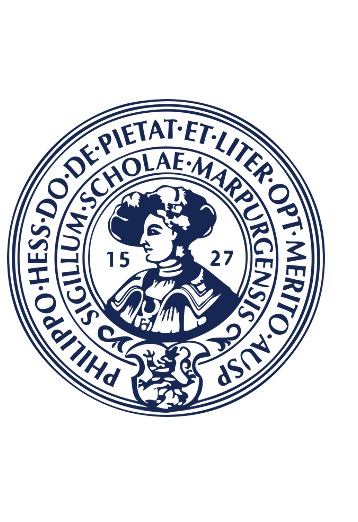About me
As a microbial ecologist I am interested in studying host-microbe interactions under stressful conditions through a combination of field and laboratory experiments.
I am currently working as a researcher at the Philipps University Marburg, Germany. My main focus is on how soil, plant and insect associated microbiome respond to biotic and abiotic stresses and learning how life history strategies influence such responses. My research combines a large number of methods from classical approaches, modern molecular microbial ecology, bioinformatics and multivariate statistics.
Follow me in Twitter and ResearchGate

-

2019 - 2020
Jagiellonian University, Poland
Postdoctoral Researcher
-

2016 - 2019
INRS-Institut Armand Frappier, Canada
Postdoctoral Researcher
-

2010 - 2015
Jagiellonian University, Poland
Ph.D. in Biology
-

2010 - 2014
Vrije Universiteit Amsterdam, Netherlands
Ph.D. in Microbial Ecology
-

2007 - 2010
University of Tehran, Iran
Master in Natural Science

2020 - present
Philipps-University Marburg, Germany
Researcher
Projects
Postdoc project initiated at INoŚ, Poland
The currently available amplicon sequencing data are mainly based on the relative abundance approach. I am interested in exploring different spike-in approaches to consider overall changes in microbial biomass associated with host.
Here my goal is to compare relative versus absolute abundances of insect associated microbiomes by adding known amounts of halotolerant bacterial cells and synthetic spike-in standards before and after DNA extractions. It is clear that the absolute quantification gives a different perspective than the relative approach, which is essential to better understand complex host-microbe interactions.

Postdoc projects initiated at INRS, Canada
During my first postdoc, I have designed, set-up and analysed several unique, hypothesis-driven experiments that aim at understanding how the wheat-associated microbiome responds to short and long-term water stress, and how this can be harnessed to improve the resistance of wheat to increasing drought events.
My main experimental goals were (i) to determine to what extent Canadian wheat cultivars, developed for Quebec and Prairies climates and ranging from drought-susceptible to highly tolerant, can select beneficial belowground microbial communities under water-stressed and non-stressed conditions, (ii) to determine the effect of previous drought exposure of the soil microbiome on the selection of beneficial microorganisms by wheat and the resulting resistance to stress.

My past research (PhD project)
As part of my PhD research, I examined the resistance and resilience of the forest soil microbiome to various environmental stressors associated with natural and anthropogenic disturbances such as arsenic, salt, benzo[a]pyrene and flooding.
Understanding the adaptability of microbes to environmental perturbations is important for maintenance of ecosystem function and long term sustainability. I used a range of state-of-art biochemical, molecular and genomics approaches to study the structural (bacteria, fungi and archaea), functional genes (GeoChip, a high throughput functional gene array) and functional process (groups involved in C cycling).

Publication
- Azarbad, H., Tremblay, J., Bainard D.L., Yergeau, E. Relative and quantitative rhizosphere microbiome profiling result in distinct abundance patterns. bioRxiv, 2021.02.19.431941
- Azarbad, H., Tremblay, J., Giard–Laliberté, C., Bainard D.L., Yergeau, E. (2020). Soil water stress history and host genotype constrain the response of the wheat microbiome to decreasing soil moisture. FEMS Microbiology Ecology 96, fiaa098.
- Giard–Laliberté, C., Azarbad, H., Tremblay, J., Bainard, D.L., Yergeau, E. (2019). Soil extracts with a water stress history modifies the rhizosphere fungal communities of wheat plants under a subsequent water stress. FEMS Microbiology Ecology 1: 95(7).
- Azarbad, H., Constant, P., Giard–Laliberté, C., Bainard D.L., Yergeau, E. (2018). Water stress history and wheat genotype modulate rhizosphere microbial response to drought. Soil Biology and Biochemistry, 126: 228–236.
- Klimek, B., Chodak, M., Jaźwa, M., Azarbad, H., Niklińska, M. (2017). Soil physicochemical and microbial drivers of boreal forest soils temperature sensitivity. Pedosphere doi:10.1016/S1002– 0160(17)60400–4.
- Azarbad, H., van Gestel, C.A.M., Niklińska, M., Laskowski, R., Röling, W.F.M., van Straalen, N.M. (2016). Resilience of Soil Microbial Communities to Metals and Additional Stressors: DNA–Based 3 Approaches for Assessing “Stress–on–Stress” Responses. International Journal of Molecular Sciences, 17, 933.
- Azarbad, H., Laskowski, R., van Gestel, C.A.M., van Straalen, N.M., Nikiel, K., Röling, W.F.M., Niklińska, M. (2016). Susceptibility to additional stressors in metal–tolerant soil microbial communities from two pollution gradients. Applied soil ecology, 98: 233–242.
- Azarbad, H., Niklińska, M., Nikiel, K., van Straalen, N.M., Röling, W.F.M. (2015). Functional and compositional responses in soil microbial communities from two metal pollution gradients: does the level of historical pollution affect resistance against secondary stress? Biology and Fertility of Soils, 51: 879–890.
- Chodak, M., Klimek, B., Azarbad, H., Jaźwa, M. (2015). Functional diversity of soil microbial communities under Scots pine, Norway spruce, silver birch and mixed boreal forest stands. Pedobiologia, 58: 81–88.
- Azarbad, H., Niklińska, M., Laskowski, R., van Straalen, N. M., van Gestel, C.A.M., Zhou, J., He, Z., Wen, C and Röling, W. F.M. (2015). Microbial community structure and functions are resilient to metal pollution along two forest soil gradients. FEMS Microbiology Ecology, 91: 1–11.
- Azarbad, H., Niklińska, M., van Gestel, C.A.M., van Straalen, N. M., Röling, W. F.M. and Laskowski, R. (2013). Microbial community structure and functioning along metal pollution gradients. Environmental Toxicology and Chemistry, 32: 1992–2002.
- Azarbad, H., Niklinska, M., van Straalen, N. M., van Gestel, C. A. M. (2012). Effect of long term exposure to different mixture of heavy metals on soil microbial index. Acta environment, 20: 7–10.
- Azarbad, H., Javanshir, A., Mir–Vaghefi, A., Daneh–Kar, A., Shapoori, M. (2010). Biosorption and bioaccumulation of heavy metals by Rock Oyster Saccostrea cucullata in the Persian Gulf. International Aquatic Research, 2: 39–44.
Contact Me
Evolutionary Ecology of Plants
Biodiversity of Plants
Department of Biology
Philipps-University Marburg
Karl-von-Frisch-Str. 8
35032 Marburg, Germany
Phone Number:
+49 06421 28-23345
Email:
Azarbad.hamed@gmail.com




